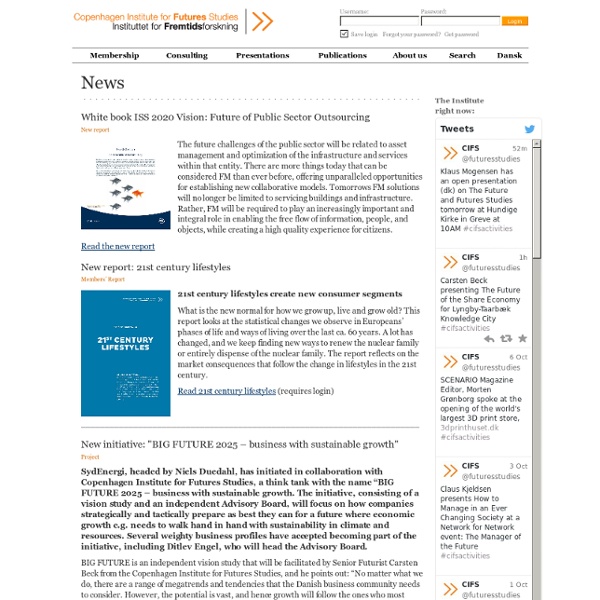



Futurist Think Tank & Strategic Futures Consultants: The centre for future studies Futures studies Moore's law is an example of futures studies; it is a statistical collection of past and present trends with the goal of accurately extrapolating future trends. Futures studies (also called futurology and futurism) is the study of postulating possible, probable, and preferable futures and the worldviews and myths that underlie them. There is a debate as to whether this discipline is an art or science. In general, it can be considered as a branch of the social sciences and parallel to the field of history. Overview[edit] Futures studies is an interdisciplinary field, studying yesterday's and today's changes, and aggregating and analyzing both lay and professional strategies and opinions with respect to tomorrow. Foresight may be the oldest term for the field. Three factors usually distinguish futures studies from the research conducted by other disciplines (although all of these disciplines overlap, to differing degrees). Probability and predictability[edit] Methodologies[edit]
Global Futures Studies & Research by The Millennium Project Finland Futures Research Centre How to Spot the Future | Wired Business Photo: Brock Davis Thirty years ago, when John Naisbitt was writing Megatrends, his prescient vision of America’s future, he used a simple yet powerful tool to spot new ideas that were bubbling in the zeitgeist: the newspaper. He didn’t just read it, though. He took out a ruler and measured it. As clever as Naisbitt’s method was, it would never work today. This may sound like a paradox. So how do we spot the future—and how might you? It’s no secret that the best ideas—the ones with the most impact and longevity—are transferable; an innovation in one industry can be exported to transform another. This notion goes way back. Sometimes the cross-pollination is potent enough to create entirely new disciplines. More recently, the commonalities between biology and digital technology—code is code, after all—have inspired a new generation to reach across specialties and create a range of new cross-bred disciplines: bioinformatics, computational genomics, synthetic biology, systems biology.